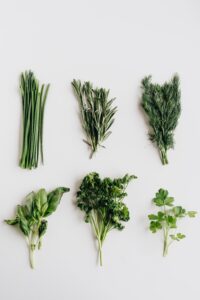Herbs To Stock Up On And Ready To Use
Herbs To Stock Up And Ready To Use: Since ancient times, people have turned to herbal remedies to enhance their health and overall well-being in several ways. However, some are even more effective and should always be kept in your home. The herbs listed below promote health and can be grown in your garden and used in the kitchen.
Chamomile
Chamomile is a versatile and valuable herb to keep on hand at all times. It is an excellent addition to both your first-aid and kitchen cabinets. The easiest part is that it can be grown from seed with little effort. It is well known for its calming effects when dealing with nervousness or anxiety. Still, it also aids in constipation, upset stomach, and headaches.
It is effective in treating pain, gastrointestinal problems, and sleeplessness. Steep dried chamomile flowers in hot water for 5 minutes to make tea. Try it before bedtime for a restful and deep sleep. Chamomile capsules can also be taken as a dietary supplement.
Chamomile has anti-inflammatory properties, making it helpful in treating arthritis, haemorrhoids, stomach pain, and cuts and wounds.
Painful menstrual cramps are a particular issue for women. Chamomile has been shown to help alleviate these symptoms, which is excellent news for many women who suffer from them every month. The risk of osteoporosis increases for women who have gone without menstruation. At this point, the bones are already quite fragile and prone to breaking. Because of its effect on the hormone oestrogen, chamomile has been shown to help prevent this. Chamomile is a lady’s best friend.
Lavender
Another herb that can help you sleep peacefully is lavender, especially if you have insomnia. It aids in the relaxation of both the mind and the body, resulting in a better mood. Simply feeling calmer and less anxious can help you sleep better. Lavender can relieve pain and muscle tension, particularly after strenuous activity or exercise. It has been said that inhaling the aroma of lavender flowers can help one feel at peace. Place a few stalks of it under your pillow or next to your bed and inhale deeply before falling asleep.
This herb is also simple to cultivate. It creates a lovely flower bed that attracts bees and butterflies. You’ll always have an organic supply if you do it this way.
Saint John’s Wort
This herb treats several mental health issues, including depression, anxiety, and stress. It may also help with insomnia and nerve pain. Although it is highly effective in improving mental health, it should not be combined with prescription medications. This is because it may interact with these medications and cause side effects.
Turmeric
This herb contains powerful anti-inflammatory properties. That’s why it’s useful for arthritic pain relief. It can help with digestive issues, indigestion, and ulcers by soothing the intestines. Also, by enhancing cognitive processes, it can be helpful in the treatment of depression. Having turmeric on hand is also helpful because it contains curcumin, which has been shown to aid in destroying cancer cells.
One must keep in mind that not all herbs help treat cancer. You should not take St. John’s wort or ginkgo biloba if you are already receiving treatment. This is because they cause cancer drugs to leave the body too quickly, causing them to stop working.
Ginger
Ginger is an excellent addition to any kitchen. It is not only delicious and enhances the flavour of food, but it also has medicinal properties. One property that ginger and turmeric share is the ability to fight cancer. If cancer runs in your family, it’s worth including ginger and turmeric in various dishes to ward off the disease. Ginger, like turmeric, can be added to various dishes, including curries, soups, stews, and smoothies.
In addition to alleviating those symptoms, ginger helps with morning sickness, motion sickness, and arthritis pain. Cholesterol and blood pressure levels might also improve. Ginger can help you feel better if you suffer from indigestion. I don’t know what will if that doesn’t persuade you to use ginger regularly.
Ginkgo Biloba (Ginkgo Biloba)
This herb’s antioxidant and anti-inflammatory properties have been shown to lower the likelihood of developing cardiovascular disease, arthritis, and cancer. There is a supplement form, so including it in your routine is reasonable. It has been shown to aid in the prevention of Alzheimer’s disease. Alzheimer’s disease, depression, anxiety, and ADD/ADHD are all linked to brain health. Ginkgo biloba promotes blood flow, particularly to the brain and heart. So it goes without saying that this potent herb can help you stay mentally fit.
Rosemary
Rosemary, like thyme, is an easy-to-grow garden herb with great culinary uses. It aids memory loss and has even been shown to lower the risk of dementia.
Rosemary has been used for centuries to treat various ailments, including asthma, bronchitis, and menstrual cramps in women. Depression can also be effectively treated with this method. If you have diabetes or are taking blood-thinning medications, avoid using rosemary oil as it may interfere with their effectiveness.
Root of liquorice
I used to chew on liquorice root as a kid, not realising how good it was for me. Liquorice has anti-inflammatory properties and can be used to treat digestive tract infections, indigestion, and heartburn. It can also help you breathe more manageable if you have a cough or cold. All of these properties stem from their anti-inflammatory and bactericidal properties. Furthermore, it has an anti-inflammatory effect on the skin, which aids in the relief of acne, psoriasis, and eczema symptoms.
I am chewing liquorice root as a child undoubtedly aided my dental health. I have few fillings, and research indicates that it prevents tooth decay.
The herb lemon balm
This herb has calming properties and can help with anxiety, stress, insomnia, headaches, and other tension-related issues. It has antiviral properties as well. It proliferates in the garden and can be used in cooking and making tasty tea.
Peppermint
This herb aids in the treatment of gastrointestinal issues such as nausea, vomiting, diarrhoea, and constipation. It also helps with muscle aches and tension headaches. This herb is also simple to grow in your garden. It can be purchased as a tea additive, a dietary supplement, or essential oil, among other forms. When constipated, add the oil to boiling water and inhale it to help you breathe more easily. Peppermint is a must-have in your medicine cabinet if you suffer from hay fever. It alleviates the allergic reaction that causes sneezing and itchy eyes.
If you use these ten herbs regularly, they will keep you healthy. Most of them are edible, while others can be purchased as supplements or made into tea. Why not give at least one of them a shot and see if it makes you feel better?
The post Herbs To Stock Up And Ready To Use appeared first on https://gqcentral.co.uk




Comments are closed